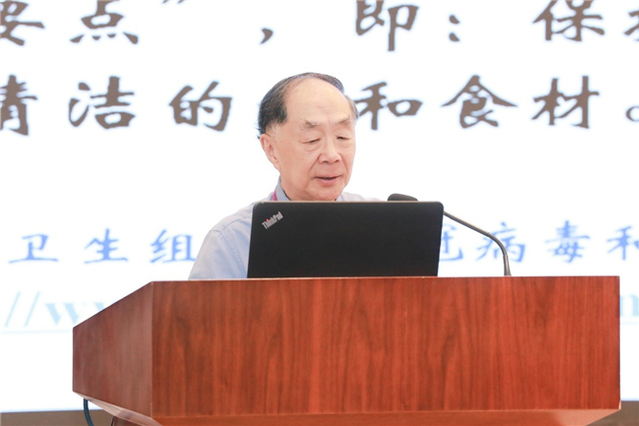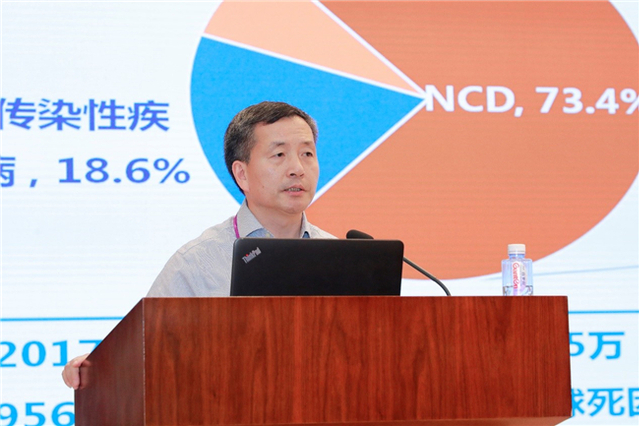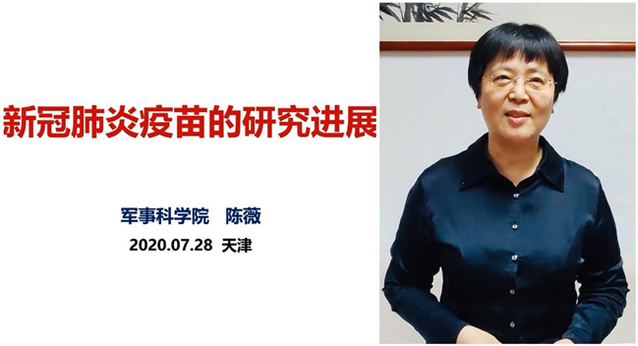National Dean Forum of Public Health Discipline Development held at Nankai University
On July 28th, the National Dean Forum of Public Health Discipline Development co-organized by Nankai University, Tianjin Medical University and the National Key Laboratory of Infectious Disease Prevention and Control (China CDC) was held at Nankai University. Four academicians and more than 20 well-known experts and deans from the Chinese Center of Disease Control and Prevention, Chinese Academy of Medical Sciences, Chinese Preventive Medicine Association, Peking University, the School of Public Health of universities and other scientific research institutes attended the seminar.

At the opening ceremony of the forum, Tianjin Joint Institute of Public Sanitation and Health and Nankai University Institute of Public Sanitation and Health were inaugurated. Chen Junshi, academician of the Chinese Academy of Engineering, gave an academic report entitled New Coronary Pneumonia and Food Safety. He emphasized that currently there is no evidence that the new coronavirus spreads through the digestive tract. There is no need to overly panic, but it is still necessary to be alert to the threat of food contamination.
Prevention of new coronavirus infections, especially those from suspected food sources, needs to be based on science. We recommend following the five principles of WHO to ensure food safety: keep clean, separate raw and cooked, cook and cook thoroughly, maintain a safe temperature, clean water and ingredients. Chen Junshi said.

In his academic report, Academician, Xu Jianguo introduced in details the related research on reverse etiology. He pointed out that the research idea of reverse etiology is to proactively discover and name new microorganisms and evaluate their influence on human pathogenicity and public health. Based on this, proposing a list of new pathogens in the future, conducting research, and ultimately preventing major infectious diseases. Xu Jianguo pointed out that most of the human pathogens in the future will be natural epidemic foci. It is very meaningful to carry out research on wildlife microbiome.

Shen Hongbing, academician of the Chinese Academy of Engineering and president of Nanjing Medical University, shared the research progress of tumor epidemiology - a key issue of national health.
According to Mr. Shen, tumor ranks second in the number of all the causes of death in the world. In 2018, the top five cancers in the number of new cancer cases in the world were lung cancer, breast cancer, colorectal cancer, prostate cancer and gastric cancer; the top five cancers in the number of death cases were lung cancer, colorectal cancer, stomach cancer, liver cancer and breast cancer.
The burden of death caused by cancer has been the fastest to rise in China, but the cancer survival rate has increased in the past 10 years. In the past 15 years, the incidence of “rich cancers” such as lung cancer, colorectal cancer, prostate cancer and female breast cancer in China has been on the rise.
According to 'Healthy China 2030' planning outline, by 2030, the five-year survival rate of cancer and the early diagnosis rate of key cancers in high-incidence areas, and the significant reduction in premature mortality from cancer will be achieved. Opportunities and opportunities Challenges coexist in the research on tumor epidemiology . Shen Hongbing said.

At the forum, Chen Wei, academician of the Chinese Academy of Engineering and researcher of the Academy of Military Sciences, gave an online academic report, introducing the current research progress of the new coronary pneumonia vaccine for which he is widely concerned.
Chen Wei said that March 16th is an important day for humans to fight against the new coronavirus. On that day, our country's new coronavirus vaccine was approved for clinical use and the vaccination was completed just that night. On May 22nd and July 20th, the research team published the clinical results of Phase I and Phase II in The Lancet. The results showed that after 28 days of single vaccination of the recombinant new coronavirus vaccine, 99.5% of the subjects developed specific antibodies, and 89.0% of the subjects developed specific cellular immune responses, which is expected to provide the human body with double protection reaction to new coronavirus infections. Chen Wei said that vaccine development requires the joint efforts of biologists and industrial scientists and solidarity and cooperation of countries around the world.
On that day, the participating experts and scholars also conducted in-depth discussions on hot topics in the field of public health.
(Reported by Junhui Wu, Translated by Mengya Pan, Edited by Davide Francolino and JianjingYun)









